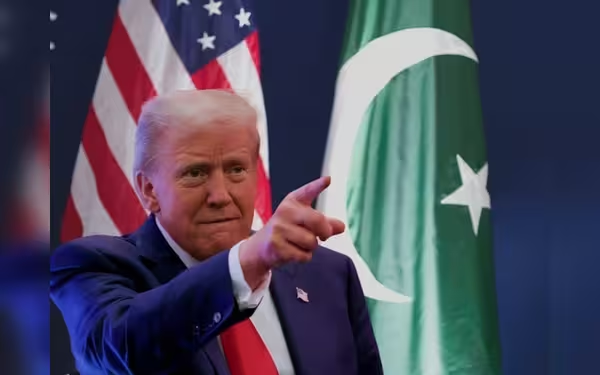Wednesday, January 15, 2025 02:39 PM
U.S. Strategic Shift in Asia: Implications for Pakistan
- U.S. reassesses strategies amid China's rise.
- Pakistan must adapt its foreign policy.
- Stability in South Asia is crucial for growth.
 Image Credits: tribune.com.pk
Image Credits: tribune.com.pkThe U.S. reassesses its role in Asia, impacting Pakistan's foreign policy and regional stability.
As the new administration in the United States gears up to take office in January, significant questions arise about the future of U.S. involvement in Asia. The region is witnessing a dynamic shift, particularly in the context of U.S.-China relations and the strategic importance of subregions like South Asia and Southeast Asia. Understanding these changes is crucial for countries like Pakistan, which are directly affected by the evolving geopolitical landscape.
The United States has long been a key player in Asia, influencing economic policies, security arrangements, and diplomatic relations. However, with the rise of China as a global superpower, the U.S. is reassessing its strategies. This reassessment is not just about countering China's influence; it also involves fostering relationships with other nations in the region, including Pakistan. Daniel Russel, a prominent figure in international security and diplomacy, emphasizes the importance of a balanced approach that considers the unique challenges and opportunities presented by each subregion.
For Pakistan, the implications of these shifts are profound. The country has historically relied on U.S. support for economic and military assistance. As the U.S. navigates its relationship with China, Pakistan must carefully evaluate its own foreign policy strategies. The potential for increased cooperation with China, especially in economic terms, could alter the traditional dynamics of U.S.-Pakistan relations.
Moreover, the U.S. strategy towards South Asia will likely focus on stabilizing the region, promoting peace, and countering extremism. This could lead to renewed efforts to mediate conflicts, particularly between India and Pakistan. A stable South Asia is in the interest of both the U.S. and Pakistan, as it fosters economic growth and regional security.
As the new U.S. administration prepares to take the reins, the implications for Asia and Pakistan are significant. The evolving geopolitical landscape presents both challenges and opportunities. For Pakistan, adapting to these changes will be essential in navigating its foreign relations and ensuring its national interests are safeguarded. The coming months will be crucial in determining how these dynamics unfold, and it is imperative for Pakistan to remain vigilant and proactive in its diplomatic engagements.













